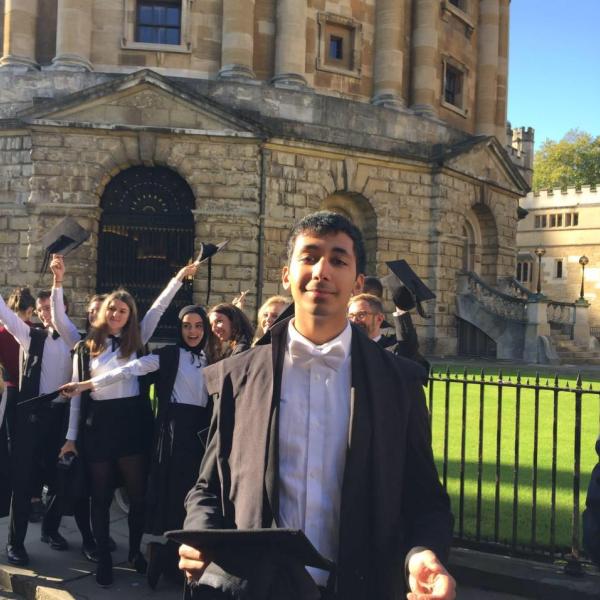
By Akshat Pranesh
My involvement with ‘Peace Amidst Chaos’ began by chance, as many wonderful things tend to. My college (Magdalen) has, for years, had a long-standing agreement with Stanford, allowing some of their pupils to come over for a term and experience a different kind of university education. At dinner one evening, I was sitting opposite one of the Stanford students, whom I got to know reasonably well, and who was interested, if a little confused, at my decision to study Russian at university. After returning to Stanford, he put me in touch with Seth, a Biology student at Stanford who is originally from Ukraine, regarding a small project he had begun in the wake of the war in Ukraine. Although interested, I had little idea what the project might entail; it was only after a brief call with Seth that he explained to me the remarkably simple goal of the project: to create an opportunity for shared dialogue between students of different backgrounds in the wake of a terrible conflict. Students included an animation student from Yaroslavl, Russia, as well as various students from across Ukraine. This simplicity is not to be understated; there is a great deal to be said for taking students who do not know each other, throwing them on a video call, and, with the impetus of some small pieces of ‘homework’ (which consisted of articles and films chosen by Seth himself), observing the types of diplomatic compromise they, collaboratively, can reach. It also gives rise to some wonderfully unscripted moments: one of our conversations resulted in a rather lengthy detour consisting of comparing Russian and Ukrainian sentences, very interesting to anyone linguistically-minded. More importantly, however, it allowed all those participating to observe, first-hand, the important similarities and differences between the two languages; neither element should be overemphasised. The acme of the project, therefore, lies in its continued simplicity, reinforced by the important ideals of collaboration and dialogue on which it is based; the war in Ukraine has been characterised by misinformation, and direct dialogue between contemporaries is, as it turns out, a wonderful way to attempt to mitigate this. This lesson, of course, extends far beyond the boundaries of this project, and, indeed, this war; it applies to any situation in which the truth can be wilfully distorted.
The websites created are a representation of the moderation and hesitance to comment too strongly on any aspect of the war achieved through months of discussion. In a conflict marred by the tendency to politicise every event, the recurring theme of our conversations was to focus on the daily experiences of those in Ukraine, for whom these events are not only parts of a global conflict, but of a daily and existential threat. The section of the website entitled ‘Voices through the Thunder’ narrates the stories of individuals who have been affected by the conflict. The accounts tell the stories of those who were young schoolchildren in 2014 as well as the elderly, for whom perestroika is still a clear memory: the accounts of Pyotr and Mikhail respectively show the multi-generational impact of war in any form; after a life shaped by conflict, Pyotr writes: ‘Is this what I would have wanted when I was young?’ Such stories illustrate the universal horrors of war, regardless of the politics and geographies involved. Through the use of pseudonyms, we have attempted to protect these individuals while, at the same time, allowing their stories and experiences to be shared. Our collaborative translations of the anthology яблоня (The Apple Tree) were also carried out with this in mind; I encourage everyone to read both the stories in ‘Voices through the Thunder’ as well as those in Яблоня, whether in Ukrainian, English, or Russian.